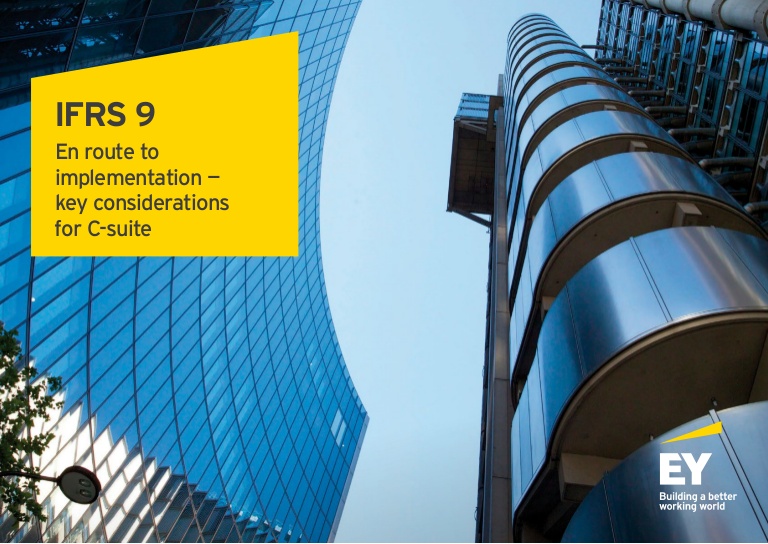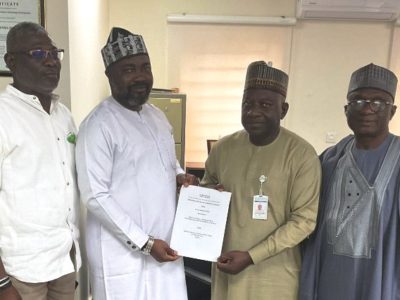As the global race for the adoption of the new International Financial Reporting Standard (IFRS 9) gathers momentum, FinTrak Software Co Ltd, an indigenous financial software firm, based in Lagos, with physical presence in most African countries, has advised on the need to ensure that the IFRS 9 software is purchased locally, to save cost and make the software adapts to the needs of individual customers.
By Anthony Nwosu
While the financial regulators work at compliance by financial institutions (FIs) to the IFRS 9 migration deadline, the Group Managing Director of FinTrak Software Co. Ltd. Bimbo Abioye said the IT regulator, National Information Technology Development Agency (NITDA) should ensure that the IT Local Content Policy is fully complied with in the implementation of the IFRS 9 by local financial organizations.
“Nigerian banks should learn from mistakes of the past and avoid the booby trap of investing heavily in foreign financial instruments calculation engines that are not easily adaptable to our local business needs, and with a very low probability of success,” said Bimbo Abioye.
IFRS 9, which was issued on 24 July 2014 replaces IAS 39 standard. Across the world, financial institutions have been mandated to migrate to the more robust and reliable IFRS 9 financial reporting software on or before January, 1st 2018. For rookies, according to Wikipedia, “the International Financial Reporting Standards, usually called the IFRS Standards, are standards issued by the IFRS Foundation and the International Accounting Standards Board (IASB) to provide a common global language for business affairs so that company accounts are understandable and comparable across international boundaries.
“They are a consequence of growing international shareholding and trade and are particularly important for companies that have dealings in several countries. They are progressively replacing the many different national accounting standards. They are the rules to be followed by accountants to maintain books of accounts which are comparable, understandable, reliable and relevant as per the users internal or external.”
A report by Uthman Saheed, an accountant on ‘Adoption of IFRS in Nigeria and Implementation Challenges’ states that: “In Nigeria, implementation of IFRS was launched in September 2010, but the successful adoption and implementation of these standards remain a mirage in Nigeria. The adoption was organized such that all the stakeholders will use the IFRS by January 2014. The adoption was scheduled to start with public listed entities and significant public interest entities who are expected to adopt the IFRS by January 2012.
“All other public interest entities are expected to mandatorily adopt the IFRS for statutory purposes by January 2013 and small and medium-sized entities shall mandatorily adopt IFRS by January 2014, (Jubril and Michael, 2010). The light of this, therefore, this study focused on the process of adopting the IFRS in Nigeria as a developing economy, the benefits and the challenges of IFRS, bearing in mind the prevailing domestic legal and regulatory framework.”
But as it stands today, most Nigerian banks and allied financial institutions appear unfazed by the deadline to globally migrate to the IFRS 9. Saheed thinks regulatory authorities that include the Central Bank of Nigeria’s (CBN), Institute of Chartered Accountants of Nigeria (ICAN), Securities and Exchange Commission (SEC), the Nigerian Stock Exchange (NSE) and Federal Inland Revenue Service (FIRS) should work jointly to design an awareness programme on the importance of compliance with accounting requirements of IFRS.
The new IFRS 9 will review how the FIs especially banks, are rated, the banks will be rated in terms of financial outlook, banking customer’s solvency and risk assessment. This is what the new financial reporting tool has fine tuned. In the words of Patrick Obianwa of Financial Services Leader Nigeria: “The requirements of IFRS 9 offer FIs an opportunity to improve on the level of sophistication of valuation models that are being used. In our view, there are challenges we envisage that financial reporters would have to grapple with as Nigeria moves closer to the IFRS 9 adoption deadline,” he said
Industry watchers are worried that Nigerian FIs might fail to meet the deadline to migrate, a situation that will see the ratings of the local FIs nosedive due to inappropriate practice. “Inability to migrate to this software means our banking system will run on obsolete software and this portends danger to the banking public,” said, the Executive Director, Technical Services at FinTrak, Steve Ongharaka.
The industry regulators such as the National Insurance Commission (NIC), CBN, SEC and others have sent guidelines but are put pressures on the FIs to ensure compliance. The CBN specifically issued guidelines as at December 2016 for banks and discount houses on the implementation of IFRS 9, but implementation has been slow on the side of banks Equally worrisome, according to some experts, is that the regulators have not also put into consideration the local content part of the IFRS 9 migration. The local content factor is as important as the migration deadline for the new reporting tool, argued Abioye.
Agnes Lutukai who heads the Department of Professional Practice, West Africa of KPMG Professional Services Nigeria said the enormous work that would be done in the country to ensure that FIs migrate require an early, aggressive and committed process. In her words: “half of the financial institutions in Europe are unprepared for the transition to IFRS 9 and the extent of work that may be required to achieve IFRS 9-compliant reporting will be significant for banks in Nigeria… banks, insurance companies and other financial institutions should start IFRS 9 implementation in earnest, so as to effectively manage regulatory and business surprises.”





























